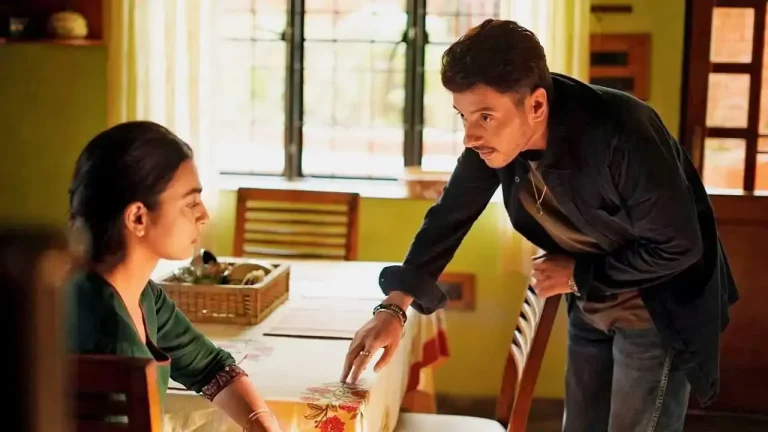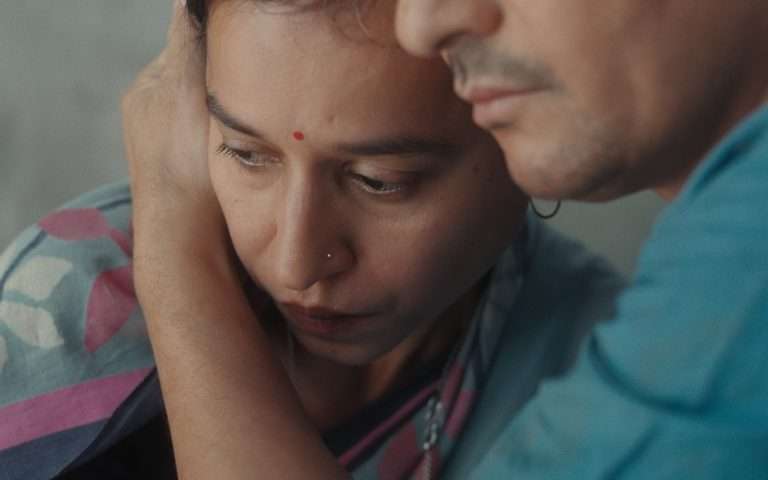For many of us, the war in Ukraine seized our attention with the 2022 invasion, but for Ukrainians, warfare has been a daily reality since 2014. With national funding focused primarily on military and healthcare demands, European sources and film festivals have turned their attention to supporting and sustaining Ukrainian film production, particularly documentaries—essential records of the varied and complex implications of war.
Such is the case with “Dad’s Lullaby,” the docudrama by Lesia Diak. Lesia, the ex-partner of a war veteran and a friend of another, pays tribute to the internal distances created by war and the irreversible damage it inflicts on communication within families, friendships, and romantic relationships. Her sensitive film explores a detailed and subtle layer, often overlooked yet profoundly challenging for everyone involved.
The film had its world premiere in the Documentary Competition section at the 2024 Sarajevo Film Festival and was also screened at DocLisboa 2024. It was subsequently shown at the Dharamshala International Film Festival later that year. Soon after, Lesia spoke with me about her thoughts and concerns.
Sofia: Your camera follows Serhiy, a war veteran, as he’s trying to recover his life with his family. It’s a very specific story and a very specific character. How did you decide to follow this single man and how did you find out that his story could be a case study, a story to reflect on a wider aspect, more than the individual aspect of the story?
Lesia Diak: There is strong, intuitive work involved in this decision-making. Serhiy as a character is very complex and charismatic. He has a very dark sense of humor. He is aware of his own flaws as a person. Initially, I made a short film with Serhiy’s family. In the environment of their small apartment and the extremely close family relationship, I found that there was a lot of tension and that there was something bigger unfolding.
Sometimes I was driven by my director’s intuition, of course. I wanted to make an observational film at first, but later when Serhiy separated from his family, I changed this directorial decision to recording very intimate conversations with him and allowing him to express his voice, his inner depths, his guilt, and anger with himself.
I wanted to make him visible, someone who has the right to carry such intense feelings after he came back from war. He was just devastated by the fact that not all the soldiers to whom he was giving orders came back alive and he felt very much crushed by this responsibility for other people. That’s how I changed the observational mode to observational and participatory when I also included myself in the film to have an opportunity to open up my main protagonist because for him it was also quite important to hear something from a woman’s perspective.
There were rare moments between him and his wife when they were able to deeply communicate what was going on with them. There were a lot of repressed emotions and repressed trauma. In our dialogues, he actually said something that probably he was not able to say to his wife and vice versa. When Nadiia (his wife) watched the film, she said that for her it was the only chance to hear about his loss, the terror he witnessed there in the war, because he was keeping this to himself while being with the family.
It’s a very common thing for veterans. They don’t want to traumatize their close ones by telling war stories. They are protecting their family members, in a way. But at the same time, this share is very important for a soldier who comes back from war. The ones who were not in war, need to hear, completely comprehend, and try to see the behavior of the one who returned differently as a person who is burdened by all the psychological loss and terror that they witnessed in war.
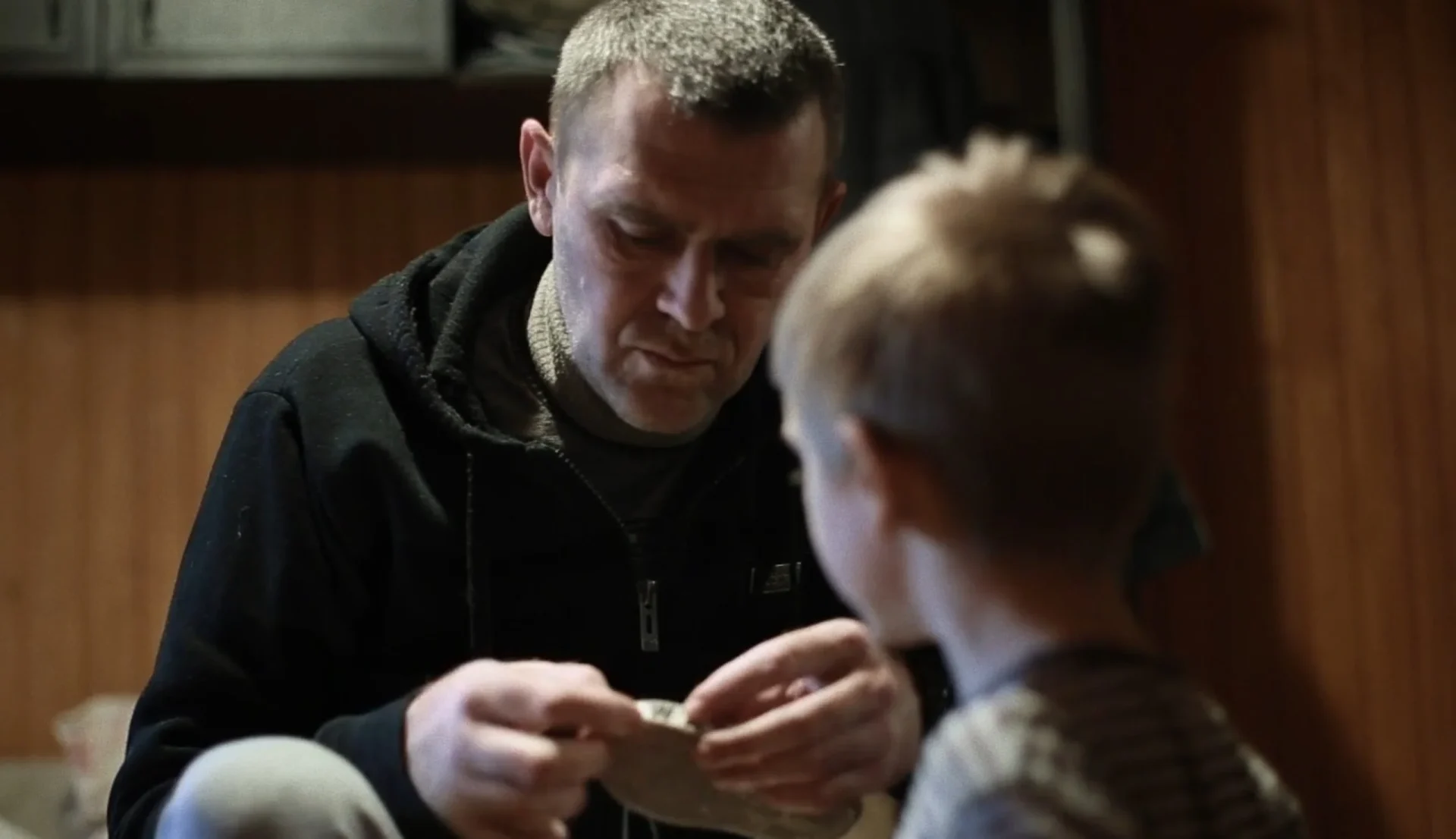
Sofia: You started filming before the invasion of 2022. I understand that your perspective back then must have been different, and the relevance you were hoping for with this film must have changed since then as well. How do you think Ukrainians can feel the resonance of the film? Is this aspect of loss in communication within close relationships, something that is already under an open dialogue within Ukrainians or is it something that would explode years after the end of the war?
Lesia Diak: When I was in a relationship with a war veteran, my close friends didn’t know how to give their support. They couldn’t face so much pain at once. The war was located in the east part of Ukraine, but a lot of people from the rest of Ukraine, like west, central, and south Ukraine, volunteered to protect the country. When these soldiers were returning home, for them it was a completely different reality. Their cities and villages seemed peaceful, while they were carrying the war inside them. They couldn’t connect.
The situation is quite different now; almost in all cities in Ukraine, there are alarms and bombings. The West is on the safer side, but at the same time, it’s not, because the bomb is not predictable and the missile can hit any place in Ukraine.
I’m assuming that it’s more spoken nowadays. There are a lot of TV journalists or famous women who lost their husbands and sons, or women who are waiting for their husbands and sons, or men who are waiting for their wives from war (a lot of women are on the front too), much more than it was in 2014. People are more connected and better informed and there are more initiatives on community levels, like rehabilitation programs for the families and for the war veterans.
Since 2014 the society has evolved. There are more mental health professionals or people who are trained, ready, and willing to work with those damaged by war. So in that regard, maybe we are in a better place, but the big downside is that now there are so many people affected that they have to stand in the lines to receive help. As in Lviv since 2022. There were so many people in Lviv’s hospitals from Mariupol just waiting to receive psychiatric help because their whole city was destroyed. The scale of this war is so much bigger and heavier than the resources we built. The expertise we advanced in ourselves as a society seems not enough. Now we really need an army of healthcare professionals.
I really admire people who speak out, all these public activists who are bringing important issues to society, and especially the ones like the veterans who are deeply impacted in a psychological way and in a physical way. There are people with injuries who are still trying to help others. I’m very impressed as a citizen, and as a human being about this behavior because people have different levels or thresholds of embracing pain. I’m very vulnerable.
Sofia: Thank you for sharing the current conditions in Ukraine. For us outside Ukraine, it’s impossible to understand all these different levels of effect on a daily basis. As you present in the film as well. You have a significant amount spent in the house within this family; which made me wonder what was the actual time you spent in this house around intimate and perhaps mundane moments of the family and you as observant of the reality. How much was your presence in the house affecting or updating the singular narrative you built, and how much perhaps emotional biases started to become part of it?
Lesia Diak: I filmed for three years, from 2017 to 2019, but not every day. I combined work on this documentary with the work in the office of a creative agency. I would only visit during my weekends or during my vacations. And the family needed to balance it. They couldn’t have me on a daily basis.
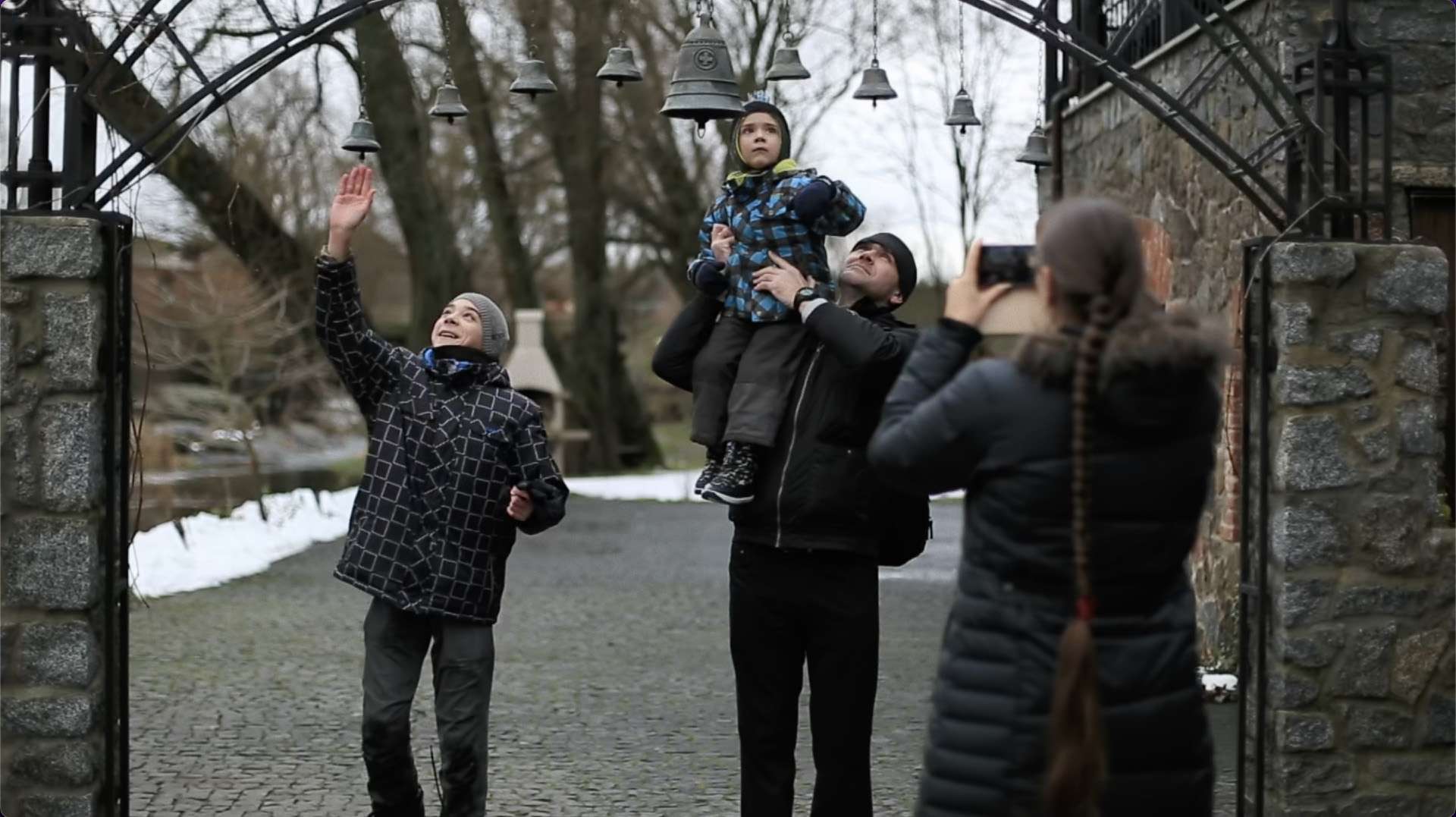
I was completely non-judgmental towards them. I felt that we were on the same wave, on the same boat, in a way. Moreover, I was processing my breakup and depression, while they were trying to be together. There was constant tension, and sometimes, of course, I felt the unspoken or hidden things. It’s not quite easy to spot the traces of trauma, even for a documentary filmmaker. It’s so much invisible.
There is a challenge in building a relationship with your protagonist. You become a big part of their life. At some point, my relationship with the family became too close. There were moments I would visit to just have tea with them and speak with them without a camera, because I felt that I needed to continue giving my attention, and giving my time, and I couldn’t drop this filmic relationship suddenly. The children actually got used to the presence of the camera and they also felt that this is something important, like there is a role for this camera in that house. They were getting very much attached to me and they were curious about the filmmaking process.
I was also there in the moments when the development of the relationship between the kids and the parents was going in a more tense direction. The parents were drifting away from their kids emotionally. They were overwhelmed with their feelings that they could give themselves to their kids. The emotional balance in the family was disturbed, and I was witnessing it.
Even after having finished filming, I was still holding on to the relationship with the family. It was not easy to maintain my relationship with Sehry when he went back to the front line. The impact of war on him was like 100 times bigger. He was already burned out by the war and, considering his age, physically worn off, but he had no choice, especially because he was experienced. Now, he is finally released from the army and back to Kyiv, but his recovery is very slow.
So, of course, all of this has impacted me a lot. At times, I actually would prefer to probably just stay with myself, to just stay alone. But in this profession, there is no such an option, you need to continue until you do your work until your work is done.
Sofia: You speak about recovery, but Serhiy’s life seems to have been shaped around war. Has he (and anyone like him) been limited to an irreversible point? Have you considered continuing to examine the implications of war through the case of Serhiy?
Lesia Diak: I think there is very little space for his recovery and very little energy in him. The way he is suggests that there is so little life left in him. As his wife told me, after she met him some months ago, the only thing that can help him is seeing his children again. But his children are now adults in Canada and it is not safe for them to come back. Serhiy’s wife is trying to arrange documents for him to go.
I personally don’t know what will help him. Of course, there is a system that welcomes war veterans on the state level, but it doesn’t work well in Ukraine. It’s designed in a very inaccessible, bureaucratic way which contradicts the needs of the person. Equally, it would be beneficial to be around other veterans and with mental health professionals on a daily basis, but someone like him doesn’t have this state of mind. He is totally exhausted mentally and physically, and he is not in the condition to ask for support. I often wonder what will happen to him once he is 60 or 70, and what happens to war veterans in the very long perspective. This story is told in “A God in Ruins,” by Kate Atkinson.


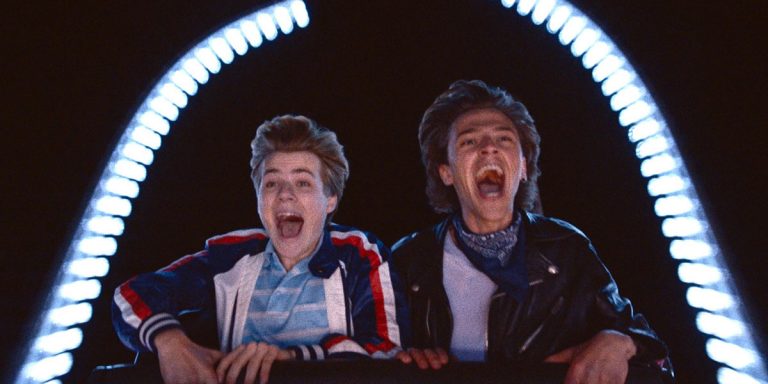
![A Tale of Two Sisters [2003] Review: Every Family Has Its Dark Secrets](https://79468c92.delivery.rocketcdn.me/wp-content/uploads/2018/09/a-tale-of-two-sisters-768x432.jpg)

